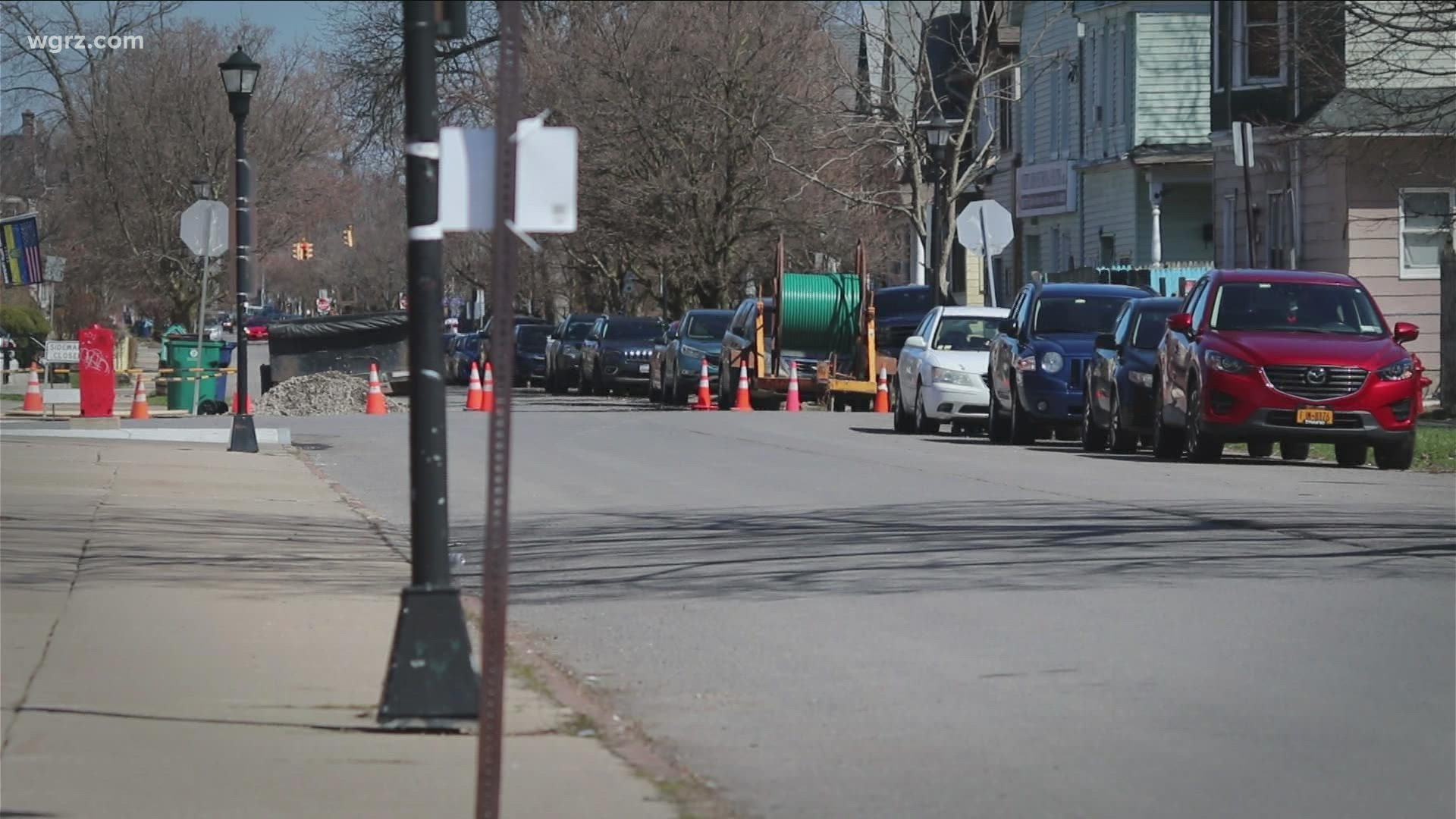BUFFALO, N.Y. — The City of Buffalo needs a champion. A broadband champion, according to a report commissioned by the city.
In February 2021, when schools were still closed and students were learning remotely, the City of Buffalo Urban Renewal Agency entered into a contract with ECC Technologies to assess broadband access across the city.
2 On Your Side has obtained a copy of the executive summary created by ECC Technologies (not affiliated with SUNY Erie). The summary outlines several short-term and long-term goals, it says, the city should take on to further close the digital divide.
As WGRZ reported earlier this year, an analysis of the comments provided during the public survey portion of the study concluded that the lack of competition and affordability was the biggest concern for city residents.
The executive summary also concluded that 92% of respondents believe it’s important to have a choice in providers. Fifty percent also reported that they pay $75, or more, per month for internet access in Buffalo.
How to fix the Buffalo Broadband problems?
The executive summary outlines several strategies for short-term, medium-term, and long-term solutions to close the divide.
To address affordability issues in the short term, the city needs to leverage the FCC’s Affordable Connectivity Program (ACP), according to the report. The ACP allows an eligible household to receive a $30 credit towards their monthly internet bill, $75 for a household on tribal land.
According to publicly available data from the FCC, as of February 2022, only 1,016 households in Buffalo have received this federal benefit.
Another long-term solution to address affordability, the report says, is to use the annual franchise fee providers pay the city to establish a low-income internet fund. This fund could be further utilities to supplement monthly internet bills for households already receiving the ACP.
This could be difficult for the city. The current franchise agreement with Spectrum (Charter) has expired and sources at City Hall tell WGRZ that it's unclear when a new agreement could be reached. In order to use the franchise fee for a broadband fund, a new agreement would need to be in place.
Until a new agreement is reached, the expired agreement is grandfathered.
Two other short-term solutions outlined in the report suggest the city establish a broadband committee and name a so-called broadband champion. This champion, according to the report, will provide the “necessary will to move the initiative forward.” This is a paid position within City Hall, and they will liaison between multiple departments to set a broadband strategy for the city.
It’s also not clear if this champion will be named in a Wrestlemania IV style tournament, or will be simply handed the title as Vince McMahon did for Kurt Angle after Survivor Series 2001. Everything, as John Oliver once alluded, is pro wrestling.
The purpose of the broadband committee would be to strategically plan and set the city's long-term broadband agenda.
Within the next one to two years, the city needs to address a variety of policies that could promote the expansion of broadband technology.
The report suggests the city adopt a dig once policy, allow mobile carriers access to the city-owned right of ways for 5G service, and “streamline permitting and approval processes.”
One specific policy that the report says is limiting new broadband infrastructure deployment is the city's five-year moratorium on underground construction under recently paved roads. The report specifically outlines this policy as a current hindrance to new fiber-optic rollout in the city.
Broadband Moonshot
Buried towards the end of the report is one of a few long-term goals the city is tasked with establishing. A broadband moonshot, so to speak.
“Set a five-year goal to ensure all city addresses and housing units have access to at least one coaxial based and one fiber-based provider.”
At the surface, that means every home and business would have access to future-proof broadband access regardless of location, income, or other identifiers that providers often cite for not expanding, or upgrading, service.
How the city would actually achieve this; however, isn’t outlined in the report.
Greenlight Networks has been actively trying to roll out fiber to the home for their Buffalo expansion over the course of the last year. But as Councilmember Joel Feroleto told 2 On Your Side in March, the company is running into easement issues with potential customers.
If the city establishes a broadband moonshot that would ensure every address had at least one coax and one fiber provider, they would need a way to navigate easement issues.
Or get into the broadband business themselves.
The report also suggests that the City of Buffalo partner with Erie County on the ambitious ErieNet project. Sources have told WGRZ that conversations between the two parties have taken place, but what that partnership would look like remains unclear.
The executive summary can be read in its entirety below:

